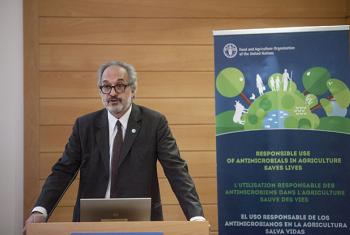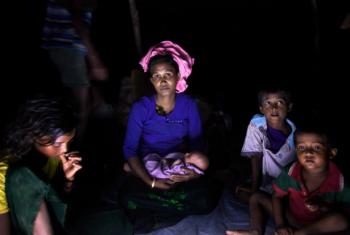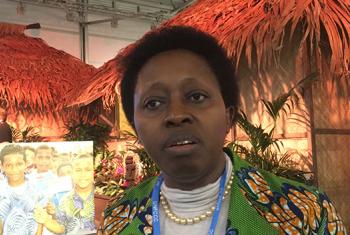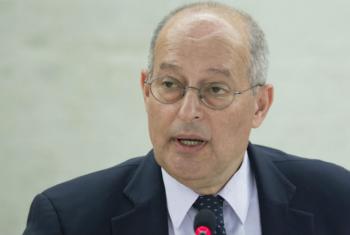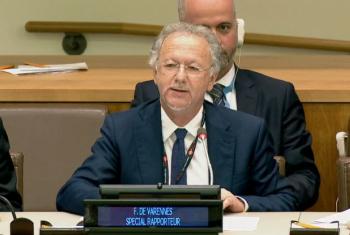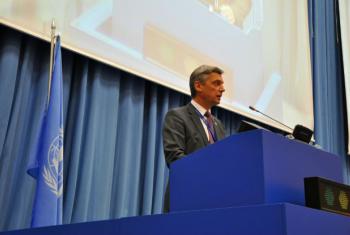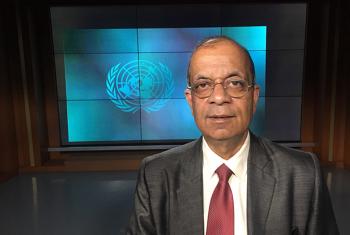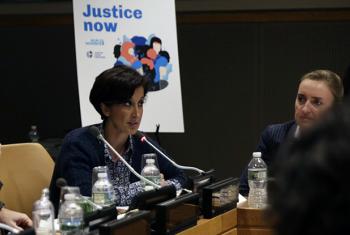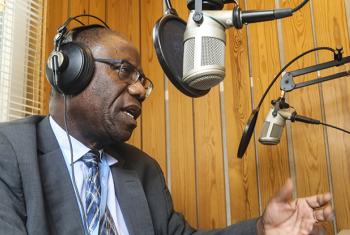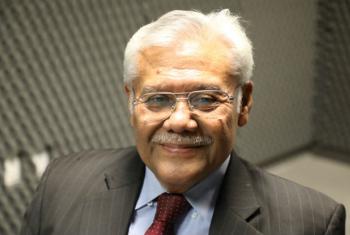Life-saving antibiotics must be handled with care: FAO officer
Recognizing the complexity of responsible medicine use is needed to help reduce the emergence of antibiotic resistance.
That’s the cautionary advice of Dr Juan Lubroth, the UN Food and Agriculture Organization's (FAO) Chief Veterinary Officer.
Dangerously high levels of antibiotic resistance around the world has sparked concern over the ability to treat infectious diseases, and FAO and its partners are calling for responsible use of these medicines in both humans and animals.

